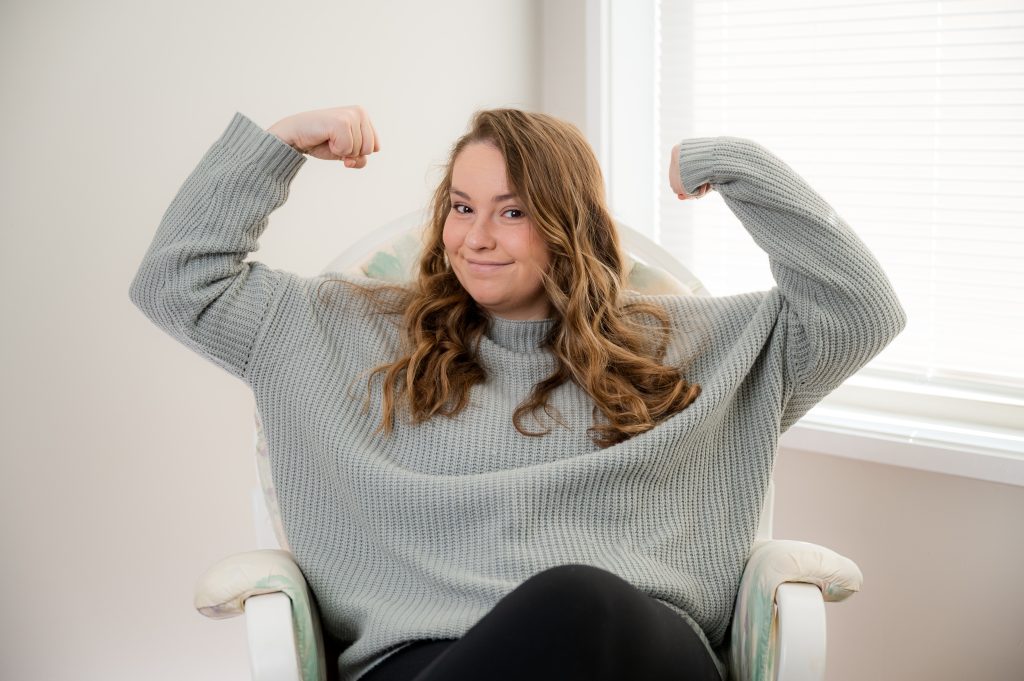Good morning, everybody, and welcome to today’s Work Of Becoming podcast which is all about self-accountability, and self-accountability is something that a lot of us have really, really quirky mindsets about which is what I’m gonna talk about today in this episode. But, as always, I’m gonna start by telling a story.
So, when I was in early college, I purchased a book by Gretchen Rubin that was called Better Than Before. It’s a self-help book, and in it, Gretchen Rubin described these four tendencies that we fall into.
So, some people are better at holding themselves accountable to external sources and some people are better at holding themselves accountable to internal sources is essentially what she lays out in this book. (None of this is evidence-based, by the way. She’s making this up.) And one of the tendencies is called an obliger, and an obliger is someone who always responds well to external deadlines or accountability but doesn’t respond well to their own internal deadlines or accountability. So, basically, you can’t hold yourself accountable, but you operate well when someone else does it, and I totally resonated with that. I was like, “This is me! I can’t hold myself accountable.”
And so, the next year, two years, maybe even three years, I remember multiple times where I thought to myself, “Oh, my gosh. This goal requires me to be held accountable, and I can’t do that myself. I’m incapable of doing that myself, so I need to hire a coach or buy a program or maybe even I can’t interact with that goal at all because I’m an obliger.” And as Gretchen Rubin has gained popularity, more and more people have come to me in coaching or have told me that they, themselves, are obligers, and as a researcher, I have noticed that obliger is almost always a code word for a fixed mindset about the skill of self-accountability.
So, if you aren’t familiar, a fixed mindset is when we believe a quality, a particular something about us, is static. It is fixed. It cannot be changed. When we believed that something — like our ability to do math or our intelligence or our communication skills — when we believe something is static and it cannot be changed, guess what we do? We give up easier. We don’t persevere in the face of obstacles. We really, really struggle with things. We have less success. But, on the opposite hand, when we have a growth mindset, we believe that those same qualities can be changed, and this whole podcast isn’t about the word obligers; this is more about your belief about self-accountability.
First, if I said, “Can you hold yourself accountable,” would you say yes or no? If I asked you, “How difficult is it to hold yourself accountable,” what would you say? If I asked you, “Are you the type of person who can hold yourself accountable, yes or no,” what would you say, and have you used that phrase before? Have you said, “I’m not the, quote, “type of person” who can hold myself accountable, because this is a gentle call out, and it’s a point I’ve got to make which is if you’re telling me that you’re not the kind of, quote, “person” who can, quote, “hold yourself accountable,” that is a fixed mindset. You are viewing that as a trait quality about yourself rather than a skill.
I look at my life now, five years later, and I’ve been through coaching, I’ve been on this change journey, I’ve read all this research, but one of the biggest things that really made a shift in my own life was starting to view myself, not as an obliger, not as someone who had this status personality type, but as someone who could learn how to hold myself accountable, and I’m gonna be talking exactly about how I did that and the process of how we learn to hold ourselves accountable in our Change Academy workshop this month. So, if you’re not signed up for that, definitely get on that.
But in this podcast, specifically today, what I want you to reflect on is do I have a fixed mindset or a growth mindset in this area, and if the answer is that you have a fixed mindset, can you start to poke at that? So, what would it be like if you could improve your self-accountability? What would it look like to get one percent more self-accountable than you were two weeks ago? What resources or support might you need in order to start learning how to hold yourself accountable? If self-accountability is a language you were never taught, you’re not gonna expect yourself to be fluent immediately, but what is the learning process going to be like, and that is going to change your mindset, it’s gonna move you towards a growth mindset, and then you’ll have the chance, you’ll have the possibility of truly developing self-accountability which is gonna make a big, big difference in your life.
That is what I’ve got today. I will see you in the next episode!



